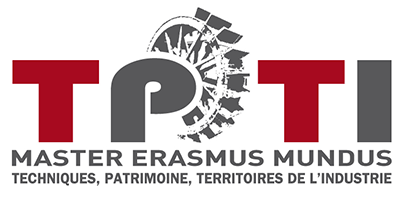Program and Mobility
The course focuses on the history and heritage of techniques, using a wide variety of methods, objects and places of observation. It draws on concepts, tools and methods from several disciplines: history, art history, anthropology, sociology, archaeology, conservation-restoration and museology.
Techniques are understood in a broad sense. The term refers to a vast range of artefacts, from the scale of the object to that of the territory. The course is based on the idea that technology should be considered as a cultural object in its own right. The aim is to break down the barriers between technical, artistic, craft and industrial categories, which do not correspond well to the reality of human artefacts.
The international and geographical dimension of the approach is essential. The master's seeks to encourage exchanges of knowledge and practice between students and teachers from different countries, and to compare European historical and heritage approaches with those developed on other continents, particularly in the countries where the master's partner universities are based.
Through these approaches, the master's aims to train researchers and practitioners who are attentive to respect for the diversity of human and natural environments, and capable of informing political and cultural action.
The multidisciplinary approach draws on the complementary skills of each partner university. The master's programme offers a common curriculum based on the full integration of students within the three universities awarding the degree. To encourage exchanges, the course structure is identical: it combines theoretical approaches (research training, seminars and courses) and practical approaches (field studies, workshops, project-based teaching, informal teaching, visits).
Module 1. Practical training and methodology
(10 ECTS)
Module 2. History and anthropology of technology
(10 ECTS)
Module 3. Scientific environment
(10 ECTS including 5 ECTS languages)
Module 1. Practical training and methodology
(10 ECTS)
Module 2. Conservation, management and valorisation of the industrial heritage (10 ECTS)
Module 3. Scientific environments
(10 ECTS including 5 ECTS languages)
Module 1. Practical training and methodology
(10 ECTS)
Module 2. Management and enhancement of technical and cultural heritage (10 ECTS)
Module 3. Scientific environments
(10 ECTS including 5 ECTS languages)
Semester 4 - in the specialty mobility university and in the university of the advising professor
Module 1. Choice of specialty mobility (5 ECTS)
- Prague Polytechnic University: Socio-History of Contemporary Technologies
- University of Alicante: Heritage and Economics of Cultural Property
- University of Oviedo: Sociocultural analysis of industrial spaces and everyday life
- University of Sfax: History, archaeology and sustainable development
- Cheikh Anta Diop University of Dakar: Tangible and intangible heritage in West Africa
- Kagoshima University: Heritage Management in a Global Approach
- National University of Cordoba: Management of heritage systems and cultural landscapes
Module 2. Graduation thesis (25 ECTS)





